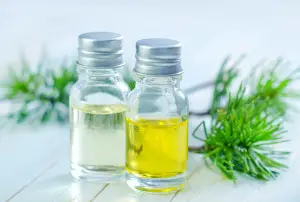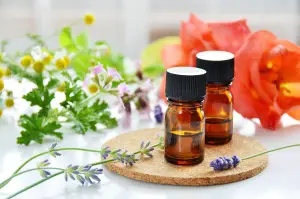Whether you’re pregnant or simply want to cut out coffee, soda, or energy drinks, kicking caffeine to the curb is a harrowing task. Quite simply, if you’ve already pursued treatments (maybe even a treatment center) to kick this addiction – and particularly if you’re going cold turkey – you know it isn’t easy. Not only can you experience physical withdrawals, you can suffer from mental, emotional, and psychological symptoms as well.
But did you know there are natural cures for caffeine withdrawal that are both healthy and effective? These are homeopathic alternatives that can kick your soda or coffee addiction in the butt, while assisting in giving you a happier and healthier life.
Before we get started, I will note that there is not significant evidence showing that moderate amounts of caffeine will severely impact your health. But excessive caffeine use can lead to heart disease and other negative health side effects.
[amazon box=”B005V2UIM2″]
The reality of caffeine withdrawal
A good portion of the country can’t get their day going without their morning cup of coffee. The statistics on caffeine addiction in the U.S. are rather startling. To start, here are a few basic facts about caffeine:
- Caffeine is a drug that comprises more than 60 different types of plants.
- It is the most popularly used drug / stimulant in the entire world.
- Tea, soda, and coffee are the most popular caffeine sources in America.
- The purported “benefits” of caffeine can last generally about 3 hours or less.
What about coffee, specifically?
- Nearly 69 million americans consume at least 3 cups of coffee every day.
- About 30 million consume 5 or more cups of coffee every day.
- Approximately 20 million consume at least 6 cups of coffee every day.
Consuming too much caffeine can stimulate a range of negative side effects, including insomnia, emotional swings, impaired digestion, and muscle tension. It is also known to decrease blood circulation to the brain, while boosting blood pressure and unnaturally increasing the heart rate.
Coffee in particular works as both a stimulant and a laxative. An interesting way to sum up the effects of too much coffee: It wakes you up in the morning and makes you go – in more ways than just one.
But I digress. Now onto our top 3 natural cures for caffeine withdrawal.
1. Nutritional supplements
 If you can, it’s best to taper off rather than quitting caffeine cold turkey. If you’re used to consuming this “stimulant” throughout the day, you can start by simply limiting consumption to the morning hours.
If you can, it’s best to taper off rather than quitting caffeine cold turkey. If you’re used to consuming this “stimulant” throughout the day, you can start by simply limiting consumption to the morning hours.
Your liver is what breaks caffeine down and weeds it out of your body. To assist in the detox process, here are a several nutritional supplements to consider:
- Magnesium
- Potassium
- Calcium
- Vitamin C
- Zinc
- B Vitamins
- Caffeine withdrawal supplements
Additionally, you can provide support to your liver by terminating allergens and toxins from your daily diet. Meanwhile, you’ll want to eat enough protein, while providing antioxidants for detoxification.
2. Caffeine-free teas
While caffeinated tea certainly can be an addiction in itself, caffeine-free teas can help with withdrawal symptoms – providing both physical and psychological benefits. If tea is generally how you get your caffeine, this is a highly effective method, because it will help with psychological withdrawals as well.
The key is, of course, to only consume teas that do not contain any caffeine. Note: Using teas with a little caffeine initially, like green tea, may be a good method for tapering. Here are a few effective teas to consider:
- Peppermint tea: Provides a refreshing taste with subtle energy-enhancing benefits. A warm mug of this tea can be a powerful alternative to coffee. Peppermint tea also offers digestive benefits, particularly for gas and stomach bloating.
- Ginger tea: Similar to peppermint, this tea offers a moderate energy-enhancing substitute for caffeine. A strong brewed ginger tea will not only wake you up but can improve mood throughout the day.
- Chamomile tea: Like ginger and peppermint, chamomile tea does not contain any caffeine. Although it provides contrasting benefits in that it helps promote relaxation, which is good for the stress that addiction and withdrawal can stimulate.
Finding a coffee or caffeine replacement is an arduous task. But replacing rather than just omitting is a great way for starting the detox process.
[amazon box=”B06Y2K8219″]
3. Our favorite – essential oils
 Note: While we are strong advocates of essential oils, we are not qualified to make claims that they will “cure” or “treat” various addictions.
Note: While we are strong advocates of essential oils, we are not qualified to make claims that they will “cure” or “treat” various addictions.
Our favorite organic remedy for caffeine substitutes is the use of essential oils. Not just because we sell them (yes, we have to self-promote a little), essential oils often work as powerful alternatives to traditional methods. And caffeine certainly falls in this category.
There are a number of options you can try out. Some oils help improve mood, some help with energy, some with cravings, some with headaches and tension, and others help with focus and attention. Here are a just a few oils that can help in dealing with these issues:
- Peppermint: Helps relieve mild head pain while improving energy. Great for applying directly to the temples.
- Orange: Provides a refreshing, citrusy scent that helps lift your mood, while increasing focus. Great for diffusing in your living room or office space.
- Lavender: Helps with anxious feelings..
Another option you have to help wean off the caffeine naturally is combining multiple oils. You can apply multiple oils together for increased effect. For instance, you can get an instant pick-me-up by applying peppermint and orange simultaneously. All you have to do is follow these simple instructions:
- Put 2 drops of orange on the palm of your hand.
- Add 2 drops of peppermint to the same hand.
- Rub the palms of your hands together really good.
- Then finally, put your hands together, making a slight hole, and suck the aroma in deeply.
It may sound silly, but it really does give you an instant energy boost. That being said, you only want to do this with high quality, therapeutic grade oils.
Wrapping it up with a few key points
- Use nutritional supplements like calcium, zinc, and vitamin C to help with general addiction symptoms.
- Consume non-caffeinated teas as a replacement. This will help physically, while also helping psychological withdrawals.
- Our favorite, use essential oils to address a range of withdrawal symptoms, including headaches, mood swings, energy, and concentration.
As we’ve concluded, tens of millions of Americans consume caffeine every day. And getting off of this popular stimulant may seem impossible. Just know that you’re not alone in trying to kick the habit. And using the right techniques, it can be done.
[amazon box=”B005V22SEI”]



Thanks so much! I will use the peppermint and orange oils. I am new to essential oils and I’m excited to use them whenever and wherever I can. Again, thank you for this very informative article.
I had a horrible headache after a day of no caffeine. I wasn’t able to use pain relievers b/c I was doing a saliva stress test. The thing that helped it most was a hot bath with orange oil!